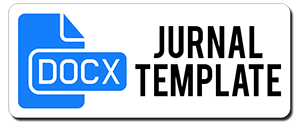تطوير منهج التعليم لغير الناطقين بها في المرحلة الابتدائية
DOI:
https://doi.org/10.47498/arabiyya.v13i02.3171Keywords:
Theory, Arabic Language Learning, Curriculum DevelopmentAbstract
The learning curriculum is part of the educational toolkit. In language learning, especially Arabic learning, an appropriate curriculum is needed. Therefore, curriculum development in its preparation and implementation is very much needed. The learning curriculum must be adapted to student needs and technology so that students are able to develop language skills. The Madrasah Ibtidaiyah curriculum is as follows: "Curriculum is interpreted to mean all of the organized courses, activities, and experiences which pupils have under the direction of the school, whether in the classroom or not" . What this means is that the interpretation of the curriculum is broad because the curriculum is not just subjects (courses), but includes all activities and experiences that are the responsibility of the school. Its implementation is not only limited to the classroom walls but also outside the classroom in accordance with the goals to be achieved. The aim of education is not only to convey subjects, but also to develop the child's personality and learn how to live in society. The learning process should take place according to the child's age and range of thinking without any dichotomies and restrictions on thinking and erasing stereotypes that can kill character and cognitive reasoning without us realizing it. Madrasah Ibtidaiyah must be able to become an institution that truly nurtures children's hopes and potential and allows imagination and thoughts about life to run freely and as teachers must be able to cultivate and develop various kinds of children's intelligence. Future learning must be able to eliminate the impression that school is difficult and bloody. so that learning becomes fun and can become a child's habitus in the future and all good potential becomes embedded in long-term memory and manifests into deep thinking maturity. The main school, Madrasah Ibtidaiyah, must be an oasis amidst the complexity of our education system. Teachers must be real inspirations and not only be Theory Centric but develop ways of thinking critically and based on students' social reality This research uses a descriptive analysis method with data sources taken from books, journals and articles related to Arabic language learning theory and Arabic language learning curriculum development. The results of this research show that Arabic language learning theory has a very close relationship and connection with curriculum development. Therefore, curriculum development is carried out from learning theories to create an effective curriculum in developing students' language skills and making it easier for students to understand Arabic language learning and apply it.
References
Ali, Muhammad, Pengembangan Kurikulum di Sekolah, (Bandung: Sinar Barui Alqesindo, 2005)
Anwar Abd. Rahman. (2017). “Penerapan Metode Langsung Dalam Pembelajaran Bahasa Arab”, Jurnal Diwan Vol.3 Nomor 1.
Buhori Muslim and Syarifuddin Hasyim, “Implementasi UU No. 12 Tahun 2012 Dan PP No. 8 Tahun 2012 Terhadap Pengembangan Kurikulum Program Studi Pendidikan Bahasa Arab Fakultas Tarbiyah Dan Keguruan UIN Ar-Raniry Banda Aceh,” لسـانـنـا (LISANUNA): Jurnal Ilmu Bahasa Arab Dan Pembelajarannya 8, no. 2 (2019): 151, https://doi.org/10.22373/ls.v8i2.4560.
Hamalik, Oemar Dasar-dasar Pengembangan Kurikulum, (Bandung: PT. Remaja Rosdakarya, 2007)
Idi, Abdullah, Pengembangan Kurikulum; Teori dan Praktik, (Jakarta: Gaya Media Pratama, 1999)
Maunah, Binti, Pengembangan Kurikulum Berbasis Kompetensi, (Yogyakarta: Teras, 2009)
Muhaimin, Wacana Pengembangan Pendidikan Islam, (Surabaya: Pustaka Pelajar, 2004), cet. II
Muslam, Pengembangan Kurikulum, (Semarang: PKPI2, 2008)
Nasution S., Asas-asas Kurikulum, (Jakarta: PT Bumi Aksara, 2006)
Nurgianto, Burhan, Dasar-dasar Pengembangan Kurikulum Sekolah,
Rauzatun Nufus and Buhori Muslim, “Taṭwīr Al-Kitāb Al-Madrasī ‘Buku Pembelajaran Bahasa Arab Kelas V Kurikulum 2013’ Bi Al-Wasā’il as-Samiyyah Al-BaṣariyyahAlā Fahm Al-Qawaid an-Naḥwiyyah Bi Al-Madrasah Al-Ibtidāiyyah Al-Islāmiyyah Al-Ahliyyah Cendekia Darussalam,” EL-MAQALAH: Journal of Arabic Language Teaching and Linguistics 2, no. 2 (2021)
Tim PEKERTI-AA PPSP LPP UNS, Panduan Pengembangan Kurikulum, (Surakarta: LPP UNS, 2007)






